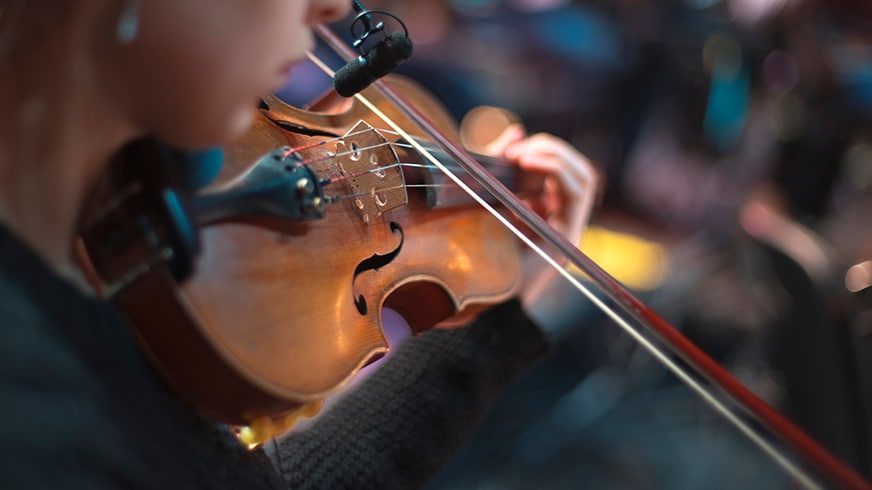I would like to thank the entire Academy for this award. It makes me very happy. It makes me a little self-conscious when I think of the line-up of award winners in front of me. The calibre, the level of the prizewinners. And I always have to see whether and where I can fit in. Well, thank you very much.
Minister of State Herrmann, thank you for your words of welcome. I am grateful that you mentioned that, in addition to an interest in art and culture, which is always an intellectual endeavour, an intellectual examination of one's own time, we must not forget the social aspects and the togetherness of people in life. And that was also the reason why we as a whole family decided to make this donation for the Ukrainian refugees and also publicised this campaign.
And then, Father Mennekes, thank you for your laudatory speech. So many good words, so many memories. I had to smile the whole time. But you are right. You have shown that I was never alone, but that I always had companions, that there was always a whole group in which I was involved, a group that endeavoured to get things done. And it's great that so much has been achieved.
Then my heartfelt thanks go to the Munich Philharmonic Orchestra and the quintet with their wonderful music, which is a great gift to me, and it is a great pleasure that I can share it with all of you who are attending the ceremony. Thank you very much.
Greetings again from me to all of you! I couldn't greet everyone. I also greet the whole Academy, including the entire Academy staff, who are all old friends of mine. And it's great that you can be together again. It's marvellous that during the two years of isolation, everyone has been very inventive and imaginative in keeping the Academy alive. And I'm really pleased that we can now return to our work, to the continued life of the Academy. It also brings something back to this house: the cultivation of hospitality. This has always been a very conscious, important point, because it is also an important element of people living together. This has revitalised a special attraction of the Academy. I see that with great pleasure.
Another point is, of course, the preoccupation with art, which is now growing and taking up more and more space in our lives. Exhibitions are taking place. And this openness naturally also played a part when I decided to document my departure from this house with this picture that you see behind me.
And when you look at it... Yes, it's a very difficult picture, I know that too. After more than 20 years on the wall in my office, the view changes a lot and makes it clear how little is certain, but the premonitions are there. And when I look at what has become visible to me, I realise that this terrible agony is never a passive agony, but that it is completely active. And the image is not wrongly called the entry into Dachau; it may refer to a different Dachau, but basically it is a glorious entry of a sovereign suffering that moves in to redeem. And above this splendour, the tormentor actually disappears into a very banal minor supporting character. He actually drops out of the story altogether.
I was actually able to live very well with that for 20 years. I know it's not a comfortable image, but comfort has no place in my wishes for the Academy either, I admit that. We have endless problems with the world, Ukraine, and next, of course, the crisis in the Church - topics for the Academy. But, Your Eminence, you named them honestly right from the start. You have taken matters into your own hands. It's a rocky road, I know that. There are so many stones that you can hardly recognise the path. But it leads out. I have absolutely no doubt about that.
In addition to all the other problems and concerns that exist, the Academy naturally also has wonderful other topics, such as dealing with all the scientific developments in the country, the technical achievements that we can't even handle yet, where we still have to learn how to use them. When I think of artificial intelligence, my head spins, but I'm fascinated. These will all be topics that can perhaps be explained, analysed and communicated in a more balanced way in talks at the Academy. I wish the Academy joy, enthusiasm and confidence, but also the strength and courage to carry this out. I have no doubt that you will always maintain strict scientific rigour, scientific discipline, as it has always been practised. And that gives what is thought and said in the Academy great weight.
And then I wish you a quantum of clairvoyance to see what issues are coming our way. In the end, to understand a little bit about what this fantastic, rapidly developing, changing world actually means. And I copied that from Romano Guardini. Many thanks and best wishes.
